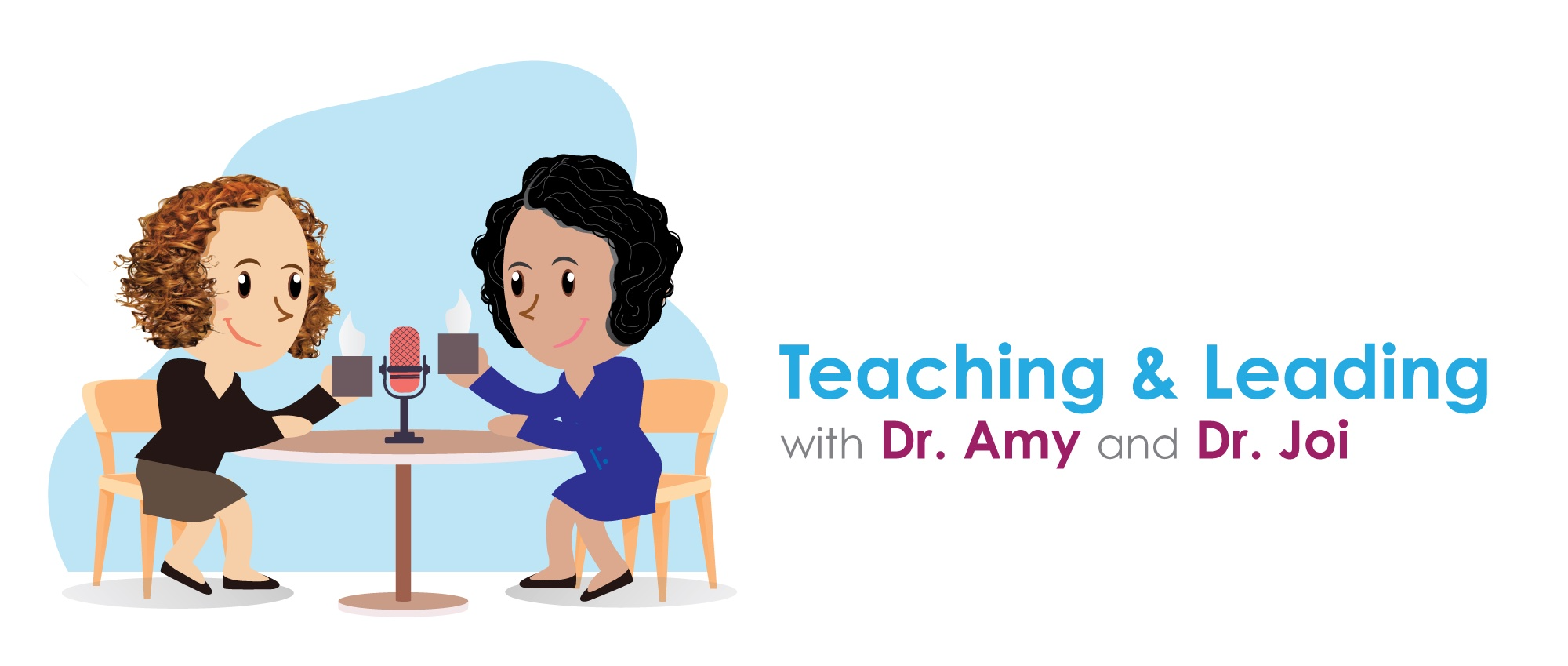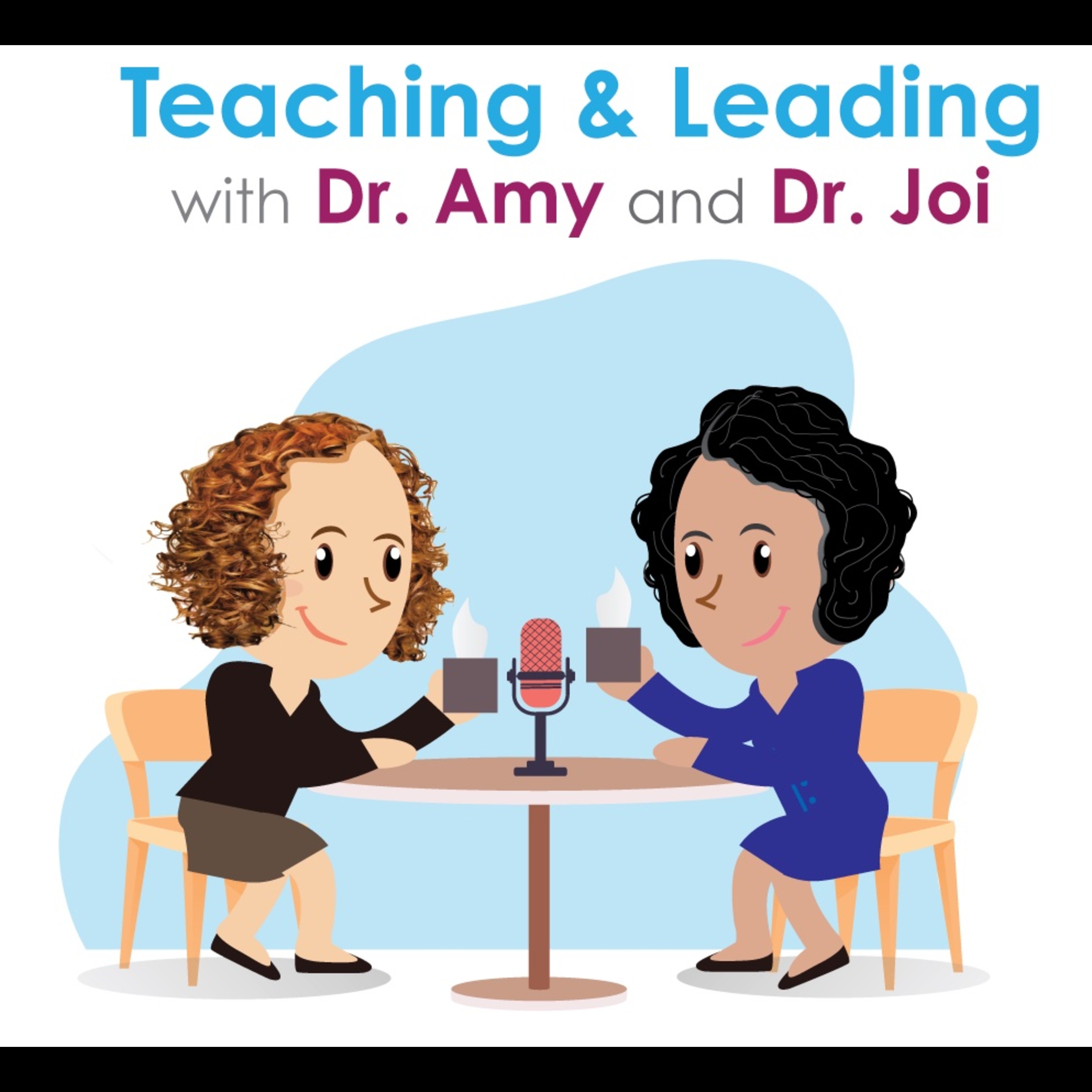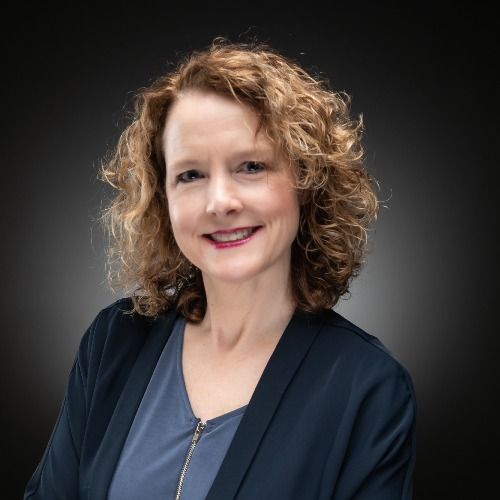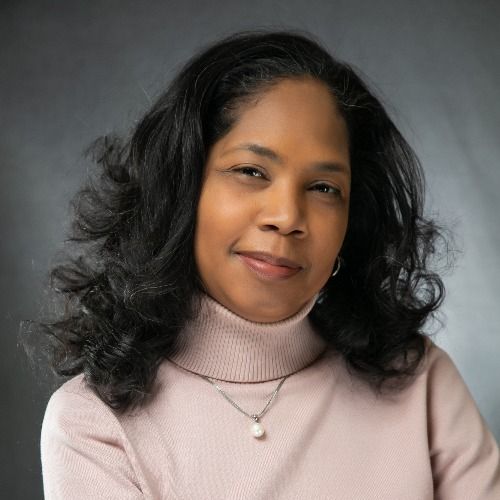Amplifying Black Voices: A Conversation with Mayor Joe Woods
Mayor Joe Woods discusses his dual passions for poetry and public service, highlighting his role as the 12th mayor and second African American mayor of Park Forest. He emphasizes the transformative power of storytelling and the importance of lifelong learning. Woods also addresses the challenges of diversity and equity, offering a poem that critiques the superficiality of diversity without inclusion and equity.
Transcript
SUMMARY KEYWORDS
Black History Project, amplify black voices, ethical government, lifelong learning, public service, poetry inspiration, Gwendolyn Brooks, Illinois Attorney General, writing workshops, immortal nature, social distancing, civil unrest, diversity challenges, reparations, optimistic hope
SPEAKERS
Amy Vujaklija, Joe Woods
Joe Woods:Amy, I always say that life is in the stories, but sharing them is transformation. Thank
Amy Vujaklija:you for joining, teaching and leading with Dr Amy and Dr Joi, this episode is part of a special Black History Project.
00:19
This project is designed to amplify black voices and provide crucial perspectives on the experiences of black people, which are often overlooked and misrepresented by offering authentic experiences reflections and successes, this project promotes an accurate portrayal of history and society.
Amy Vujaklija:Mayor Joseph Woods, you lead one of Governor State University's strongest community partners. You are serving in your first term as the mayor of the village of Park Forest, where gov state originally resided. You are the 12th mayor and the second African American mayor, you served as village trustee and previously as Park force Public Library trustee. Mayor woods, we appreciate and respect your goal to enact legislation and establish a policy that achieves a sustainable budget, protects our environment promotes ethical government and ensures that Park Forest remains a vibrant, livable community, much in line with the mission of Gov State University and
Joe Woods:better known simply as Joe by the community. You are also a wonderful, poor poet laureate, and we are honored to include you in this inaugural Governor State University Black History calendar for 2025 Mayor woods, could you please share with our listeners what you are most proud of in your personal or professional life?
Joe Woods:Yes, first, I would like to thank you and for having me be a part of this initiative as well. I'm most grateful and honored that we have been great partners throughout the years. We as in the village of Park, forest and Governor state, and I'm looking forward to continuing that. We certainly believe in lifelong learning, and we want to definitely continue that, especially as it relates to any community initiatives that we that we can be a part of. And so thank you again. As I reflect on the question about what I'm most proud of, of my personal as well as professional career, in thinking of that, there's just so many things I can include. There's so many things I would not want to leave out. However, we don't have time for all of that, right? And so what I would like to do is just simply focus on two aspects of my personal and professional career that has brought me here today.
Joe Woods:One of those things is that I am Paul laureate, as you mentioned and I thank you for that, because writing has always been my passion. But I also worked for the Illinois Attorney General's Office for three administrations, so public service has always been a part of my passion as well. It turns out that I now have both, in the sense that I navigate each day, what some might think is two different worlds, but as you look at it from a visionary standpoint, you'll find that public service as well as poetry, is quite similar in its sense.
Joe Woods:Poetry is an inspiration, and inspires me to do the good work, if you will, and to be a major contributive access to public service and what the community needs. And so in doing so, I remember when my first poet, official poet laureate, poetry days came about, really came about with a lady by the name of Gwendolyn Brooks. I was invited to the Gwendolyn Brooks Foundation's Writers Conference that changed my life in so many ways, because it allowed me to freely express who I am, my thoughts, my What inspires me, what depresses me, what brings me joy, to do all of that in writing and to meet others who have done the same thing, and who I've admired for so many years, Gwendolyn Brooks, was one of them. Nikki Giovanni, may she rest in peace, was also another one. Edward P Jones, who wrote the known world. I mean, it was just, it was so rewarding for myself on an African American experience level, because one thing that we know is that, you know we're not monolithic, and we all have so many different experiences. And so I always say that life is in the stories, but sharing them is transformation. And so I thank, I really look back, and I thank all of those who have given me so much advice throughout the years, and people that I read. About it's kind of funny.
Joe Woods:There are some of those folks who I did not even want to meet, thinking that they might really ruin my idea of who they actually were. You know what they say about meeting your heroes. You may just get disappointed. I can honestly say that I met Muhammad Ali, not disappointed. I met Gwendolyn Brooks, not disappointed. I met Maya Angelou not not disappointed. And so coming out of the Gwendolyn Brooks foundation, I actually entered into a contest about my poetry, and one of them was with the Illinois emerging writers award.
Joe Woods:I want to mention that, not necessarily to pat myself on the back, but I actually won that award. But the great part of that was that there was a full circle moment for me years thereafter in winning that award, I actually was asked to present that poem to the Illinois State Library to receive my award. Well, by this time, Gwendolyn Brooks had passed away. About a year thereafter, I was able to then not only present that award, but now even showcase that piece of poetry in a place that they now call the Gwendolyn Brooks State Library of Illinois. It was a very full circle moment for me. Because of that, I then was introduced to the executive assistant to Maya Angelou, who asked me to be a part of her, to ask if I could open up now, once she's I says, Well, wait a minute, what do you mean? Open up for Maya Angelou. She would like you to be a part of her poetry presentation, and she would like you to introduce her. And at first I thought it was a joke. They said, Well, you know, she's read your works, and she really likes your works, and I didn't know I had works. So again, that was even monumental for me, in the sense that in doing so, it came with further validation. And it came with, you know, just remember her saying, stand up in all your glory.
Joe Woods:And so as I mentioned those two things, I bring that into what public service has been, library board trustee. I decided to run for library board trustee because I wanted to give back those kind of experiences that those folks that I've mentioned had given me, and so I started doing writing workshops for kids and for their different presentations and their stage presence and their spoken word, so that they can be really expressive as well. That really was very rewarding for me, and that's something that I'm definitely proud of in my personal life.
Joe Woods:I remember there was this young lady. I kept telling her about the importance of writing. And I says, you know one thing about writing, you can no matter how long you've been gone from this earth, someone can pick up your writing and it'll feel like you're still there. And I talked about the immortal nature of writing. Well, three months later, this lady stops me in the library. She says, Excuse me, are you Joi woods, I said, Yes, ma'am. She says, I like to talk to you. I said, Is there anything wrong? She said, No, I want to talk to you about my daughter. And I said, Ma'am, I didn't have anything to do with your daughter. But she says, no, no, no, no, it's not like that. I just want to thank you, because I don't know what you told her. But one day she came home and she says, Mama, Mr. Woods said that I could live forever. And so of course, her mother and her grandmother was like, Well, what do you mean? You could live forever? So she in her way, she explained that if she put something in writing, that it will always be remembered. It was at that point that her mother, her grandmother, as well as her wrote something about how they feel about each other three months thereafter. To make a long story short, her grandmother passed away, and her daughter at that funeral was able to then say, well, my grandmother's still here, because she wrote this and they read that at the funeral service. It's those poignant moments that might seem little, but it inspires me greatly, because you never know what your contribution will be and can be.
Joe Woods:And so I try to bring that into my service here as mayor and the village president of park force. It's almost like you're going from poetry to public policy, from a policy poetry to a politician. You know, someone once suggested that I'm not necessarily a politician, but a politician. And so I try to navigate both worlds and kind of fuse them into an inspiring way so that I could meet the needs and the desires of our residents in the best way that I possibly can. You know, speaking of black history, you know, I always one thing that I one thing that I was always enamored with and continue to be in awe with, is that I never understood how Martin Luther King could have actually keep talking to the same group of people who would have just gotten dogs sit on them, fire hoses built. Beaten up, whatever the case may be, and then they're back there again two weeks later, doing the same thing. And I was reminded that what he used to say is, don't be weary in the well doing when doing the good work. And that was inspiration for them to keep fighting the good fight.
Joe Woods:Those are things that I aspire to do and to be I might fall short, but I tell you one thing. I give it the perfect try. I know that you all are very Dr, Amy, Dr Joi, that you are about the passion of diversity, given your department at GSU, and if you would like, it came to me this morning that I had written something on diversity, and it was during a time where I wasn't necessarily feeling so great about this diversity, given during the COVID experience, which we know, and unfortunately, so many people that have, in my opinion, forgotten how stressful that was and how, you know, we all almost collectively died as a community, and it's just, it's a shame how we, you know, I thought that that would bring us close together. In a lot of ways, it has not brought us close together. I think we made a mistake when we decided to call it social distancing. We should have called it physical distancing, because, you know, we are disconnected socially, and I'm really hoping for a better day as that, as that evolves, and then it was also mixed with the civil unrest that we experienced during COVID, which was the Joi Floyd situation. So I've been told by other writers before me, always, if you ever have the opportunity, give the gift of yourself. And so the gift that I would like to present you all with is a piece that I wrote on diversity.
Joe Woods:I entitled This diversity verses,
Joe Woods:verse things first, a sable fable, a bald head, plumping, portly, ruler of people, protector of man, respectful of parents killed a gray haired farmer calling for his mother on the narrow road of the universe in a city called Twin you may ask, what does that have to do with anything you see? This is the collective meaning of the names of George Floyd and those four police officers in verse, their names derivative of Aramaic Celtic French, Welsh, English, German, Greek, Vietnamese and Chinese. Now that's what I call diverse. But how does that diversity work for a man killed by a diversity of men when they're all on top and black is at the bottom? I'm adverse to the diverse that doesn't work, where black kids are at a disadvantage before they could even add first. And I'm still trying to figure out chess where black moves first. In Full Discourse, it's difficult to keep my composure. I need closure. I mean that man who killed Floyd with his knee coincidentally shares the same birthday as me, March 19. Diversity. We need to talk. I remember when we first met, oh how I loved your way, your soft voice, your culture by choice, the way you held my hand when we danced around the issues to our favorite song, a change gonna come. You had me at non threatening. The way you dress, never showing too much of our differences, but just enough similarities. The way you caressed my anger with hope, so empathetic. It felt so authentic. But did you love me as a joke, or were you loving me to sleep with me so I don't stay WOKE diversity. I don't even know who you are anymore. It seems our relationships was an illusion, because you came to my party without inclusion, you came with equality, no equity, conversation, no conversion, like never too much makeup, but just enough to cover the blotches of prejudice glistening. Yeah, you had me at non threatening. So it's time for us to break up. It's not you, it's me. You need to work on you. I need to work on me. My ancestors warned me not to mess with you. They said my child would never know you like I do. My uncle Langston Hughes said you called and said how our soul runs deep, like the rivers. Maya Angelou called you and told you how to cage where it sings. Martin called you about his dream, but did you understand his nightmare? Malcolm called you hung up. The Black Panthers called you. Didn't even pick up. And like all unhealthy relationships, you tried to separate me from those closest to me, my extended family, it's time for repair. Asian, I mean for a repaired nation. I mean for reparations before reconciliation. So now let's just be friends, anything more diverse. I suggest counseling, first on second thought, I'll give you another chance to come to my party where everyone can dance. No need to RSVP, no BYOB. Just bring your own identity. I'm forgiving. You see, we turn our pain into the blues you dance to like when I see evil I see live my dichotomy is dyslexic, or maybe I'm just a hopeful, optimistic that these are the verses to end all curses like God. Knocking down walls and combining all churches like I found a purpose with no me versus you, freedom without purchase. I hope. Thank you for listening that. Thank you.
Amy Vujaklija:Thank you, Mayor Joe Woods, for sharing your story with us so that we can highlight your voice for this black history calendar.
Joe Woods:Thank you. Thank you for this opportunity, Dr Joi, Dr Amy, I think that you know it's things like this that connect us more, and so thank you for being a part of creating this initiative that allows us to even connect further.
Amy Vujaklija:Thank you for listening to teaching and leading with Dr Amy and Dr Joi. Visit our website at G, O, v, s, t.edu/teaching, and leading podcast to see the show notes from this episode,
15:53
we appreciate Governor State University's work behind the scenes to make publishing possible. Stay tuned for more episodes with Dr Amy and Dr Joi.





